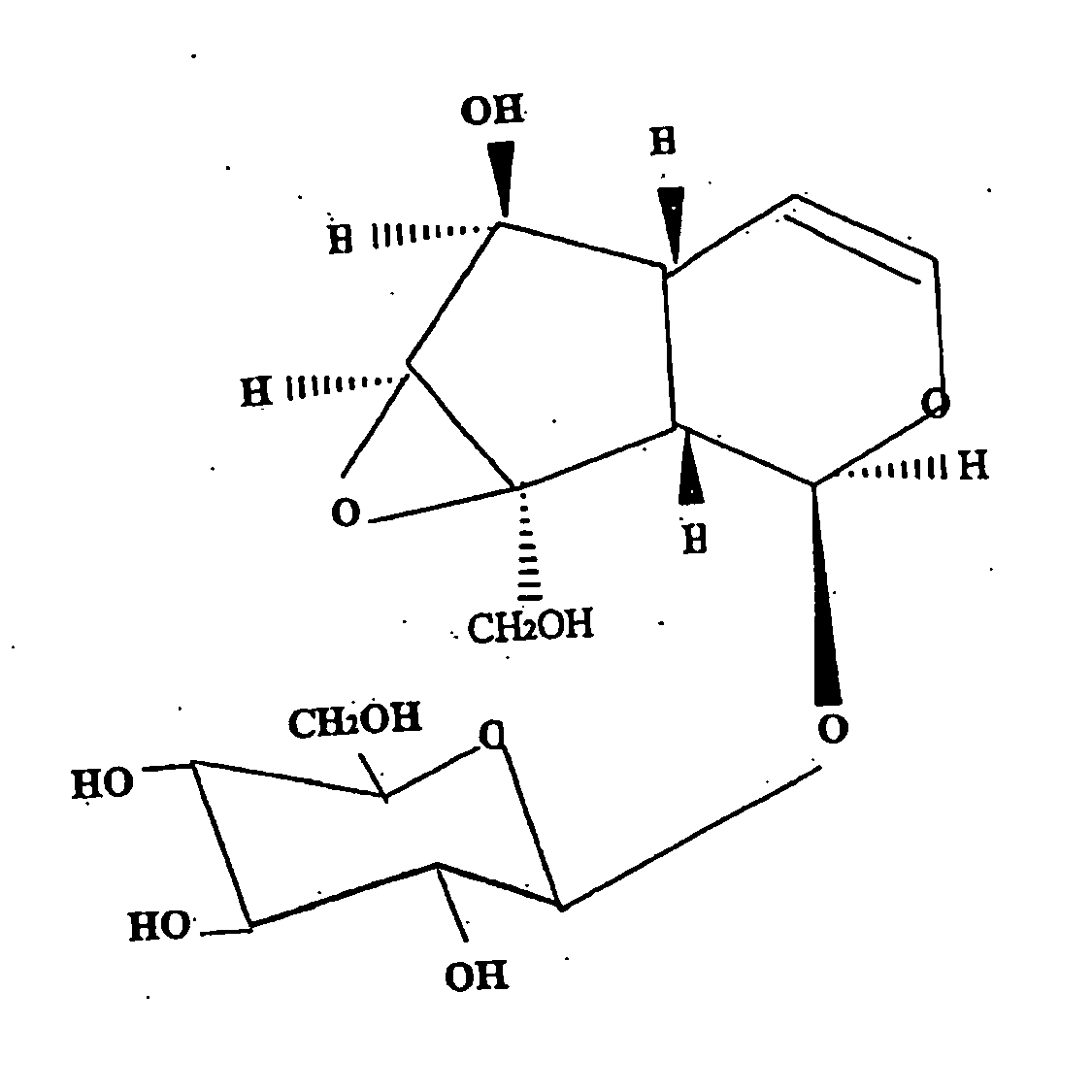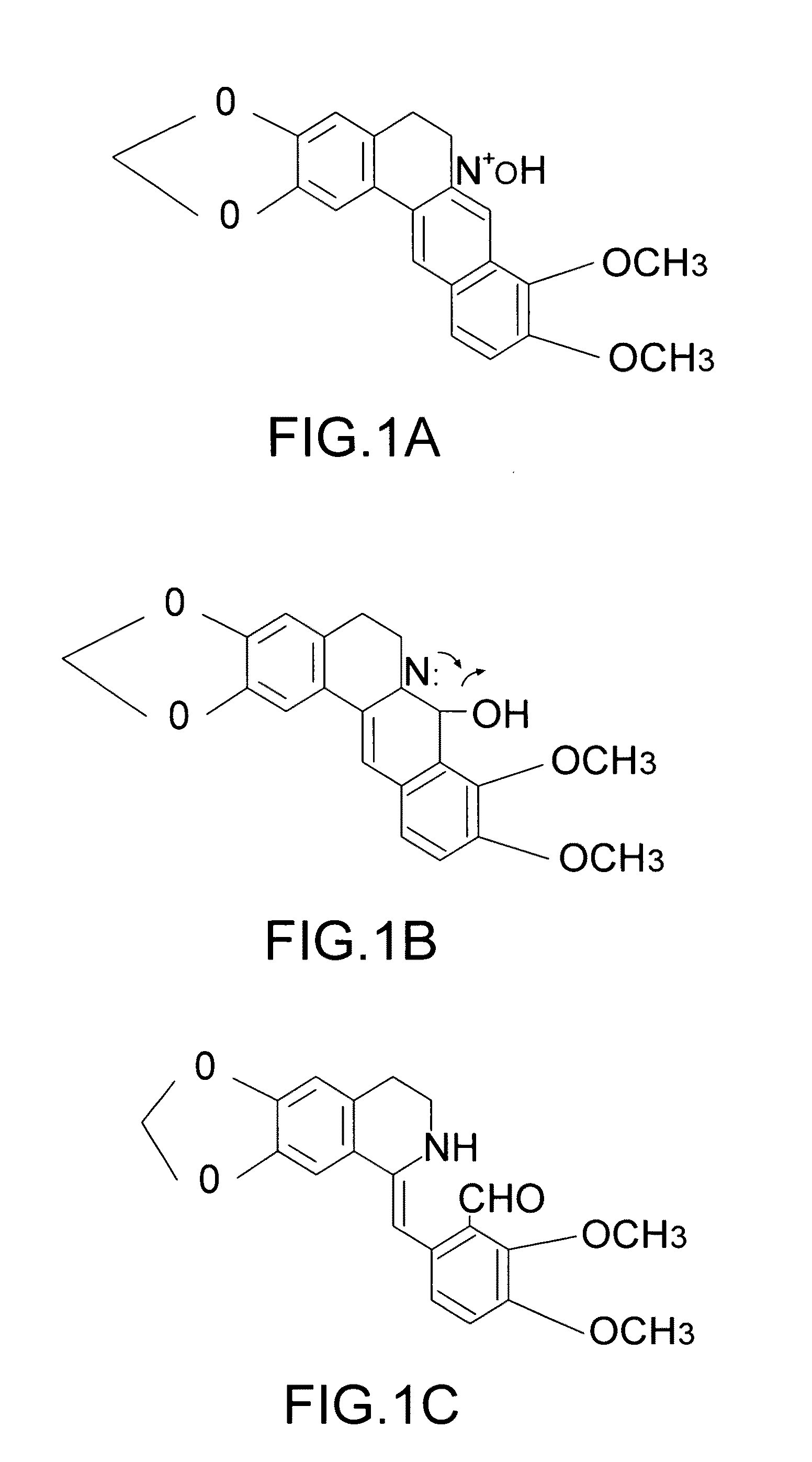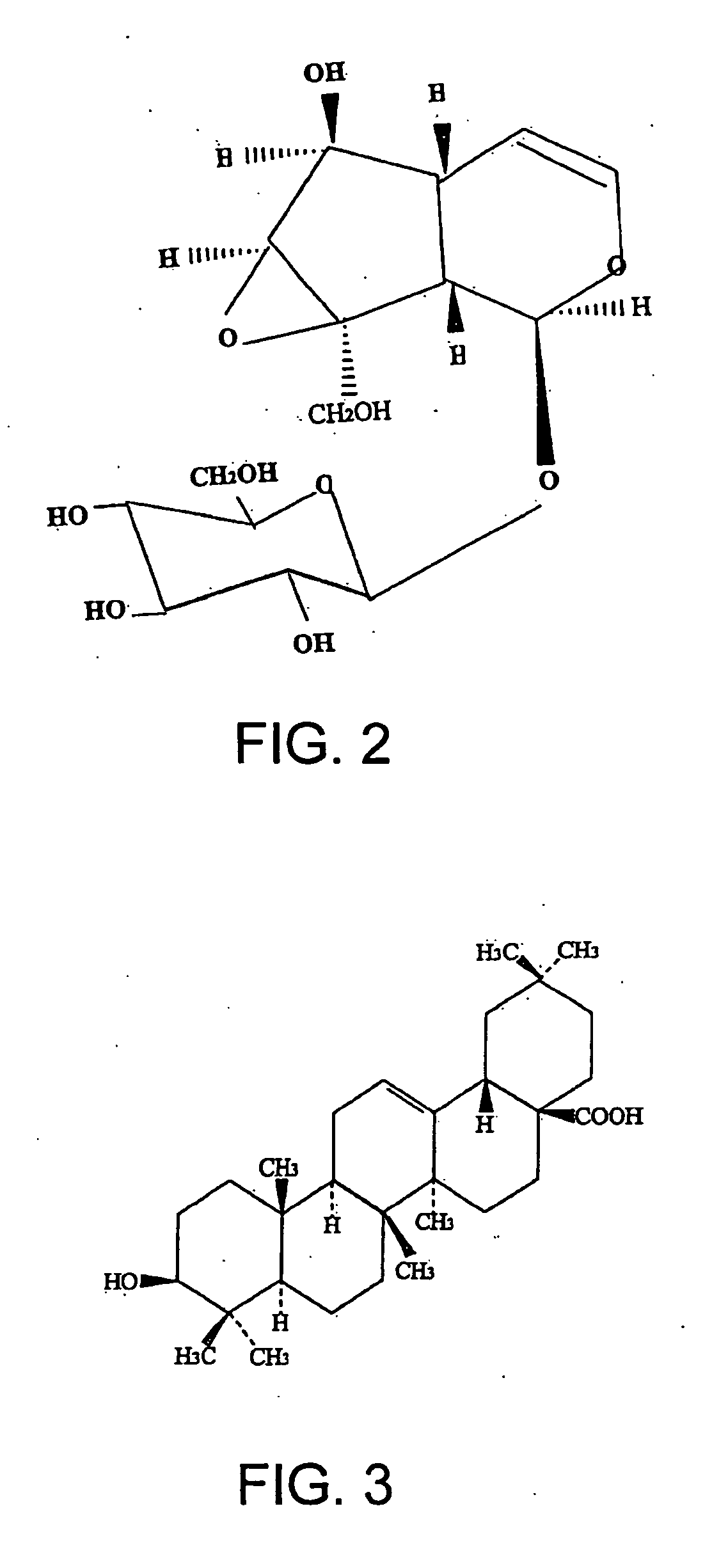Method of treating non-insulin dependent diabetes mellitus and related complications
a non-insulin dependent, complications technology, applied in the direction of biocide, drug composition, metabolic disorder, etc., can solve the problems of ineffectiveness of tetroxide alloxan diabetic animals, side effects, ineffectiveness of naturally diabetic animals, etc., to increase the insulin level of type ii diabetic patients, increase the quantity of insulin level and sensitivity, and increase the number of beta cells
- Summary
- Abstract
- Description
- Claims
- Application Information
AI Technical Summary
Benefits of technology
Problems solved by technology
Method used
Image
Examples
example 1
Effects of the Berberine and the Catalpol on Plasma Sugar Level of Tetraoxide Alloxan Diabetic Mice
[0131]FIG. 12 is a table showing effects of the berberine and catalpol on the plasma sugar level of mice. Fifty (50) large mice of 120 to 140 grams were used The mice, with same number of both sexes, were fed in separate cages according to their sexes. The average plasma sugar level of normal mice was 120 mg / dl. Fresh 4% tetraoxide alloxan physiologic salt solution was used to make the mice diabetic. Each mouse received the tetraoxide alloxan solution at a daily dose of 12 mg / 100 g. The drugs were administered through intra-abdominal injection after the mice had been fasted. Plasma sugar levels were determined on the 5th day after the injection.
[0132]The plasma sugar levels of the tetraoxide alloxan diabetic mice were from 220 to 1120 mg / dl. Thirty-two of the mice were selected by eliminating those that had plasma sugar levels higher than 500 mg / dl or lower than 300 mg / dl. The selected...
example 2
The Effects of Berberine and Catalpol on Restoring Insulin Beta Cells
[0134]The whole pancreases of the mice were collected after the mice were killed at the end of the experiment in example 1. Bouin picric acid was used for the fixing of pancreases before slicing was performed using the paraffin method. One slice was made for each of the pancreases for the purpose of determining insulin beta cell numbers. The slices were then dyed using aldehydes before they were placed under a microscope for examination. Insulin beta cells were counted from left to right. Exponential Notation Grade was assigned to each pancreas slice on the basis of the number of beta cells observed, according to the following scheme:
3PointsIneffective if insulin beta cells arenot visible or only a few are visible2PointsImproved if ½ of normal insulinbeta cells are visible1PointsClearly effective if ⅔ or normalinsulin beta cells are visible0.5PointsControlled if it is near normal
[0135]FIG. 13 is a table shows the e...
example 3
The Effects of Berberine and Catalpol on the Plasma Sugar Level of Normal Mice
[0136]Sixty (60) normal mice were divided equally into five groups. One group was used as control and one as a treatment. The mice take a composition of the berberine and the catalpol by oral administration after they had been fasted for two hours. The berberine and the catalpol doses used were 10, 50, 100 and 150 mg / kg, respectively. Blood was drawn from the back of the eye sockets of the mice at the designated times.
[0137]Referring to FIG. 8 of the drawings, the composition of the berberine and the catalpol at a dose of 50 mg / kg was able to lower the plasma sugar level of the normal mice. The related anti-hyperglycemic effect was also clearly shown.
PUM
| Property | Measurement | Unit |
|---|---|---|
| Carrier concentration | aaaaa | aaaaa |
| Carrier concentration | aaaaa | aaaaa |
| Molar density | aaaaa | aaaaa |
Abstract
Description
Claims
Application Information
 Login to View More
Login to View More - R&D
- Intellectual Property
- Life Sciences
- Materials
- Tech Scout
- Unparalleled Data Quality
- Higher Quality Content
- 60% Fewer Hallucinations
Browse by: Latest US Patents, China's latest patents, Technical Efficacy Thesaurus, Application Domain, Technology Topic, Popular Technical Reports.
© 2025 PatSnap. All rights reserved.Legal|Privacy policy|Modern Slavery Act Transparency Statement|Sitemap|About US| Contact US: help@patsnap.com



